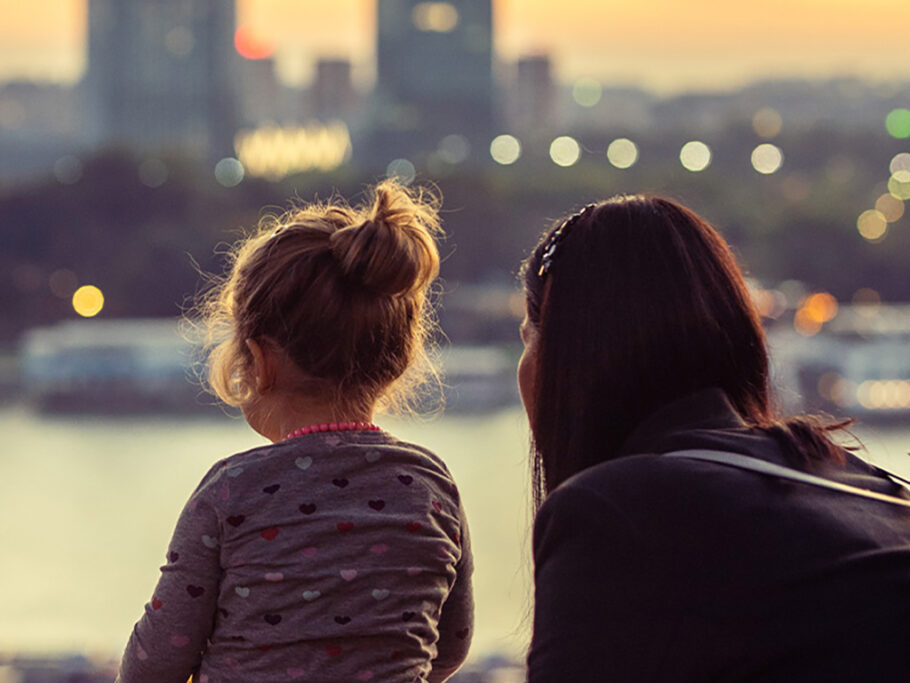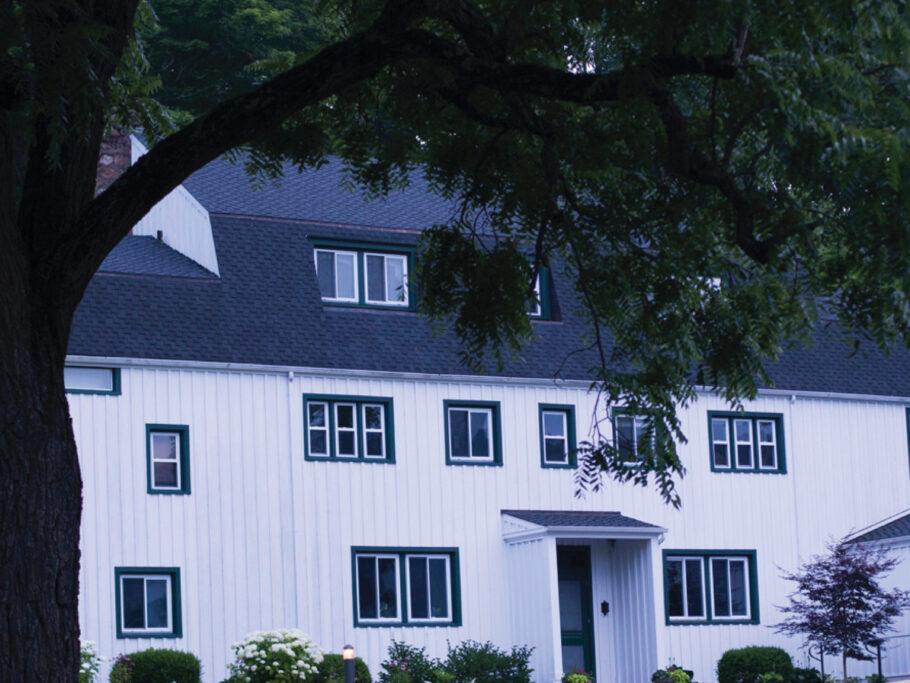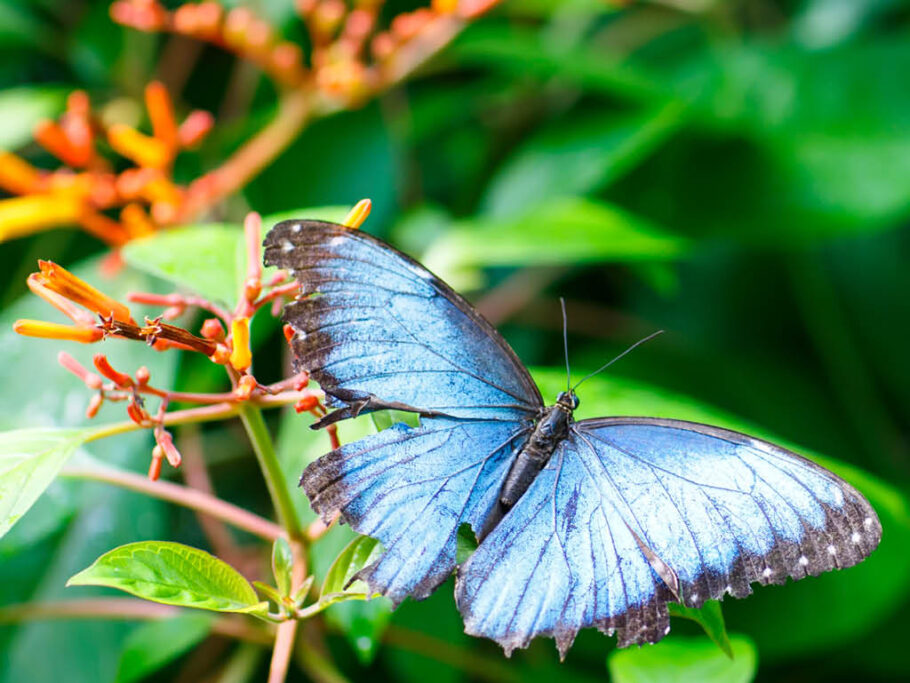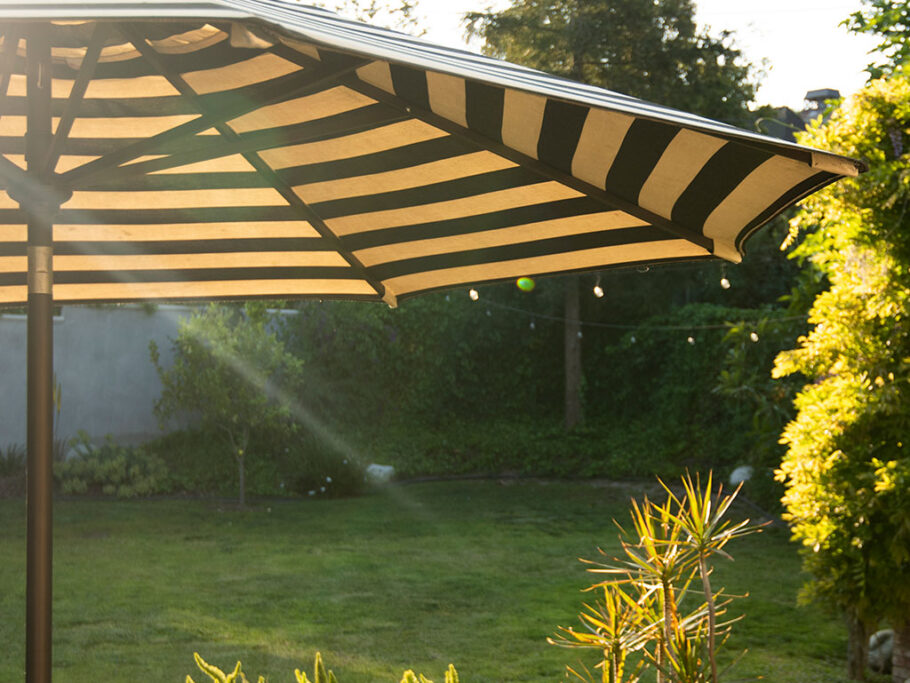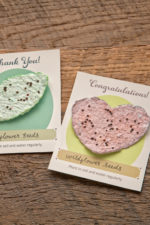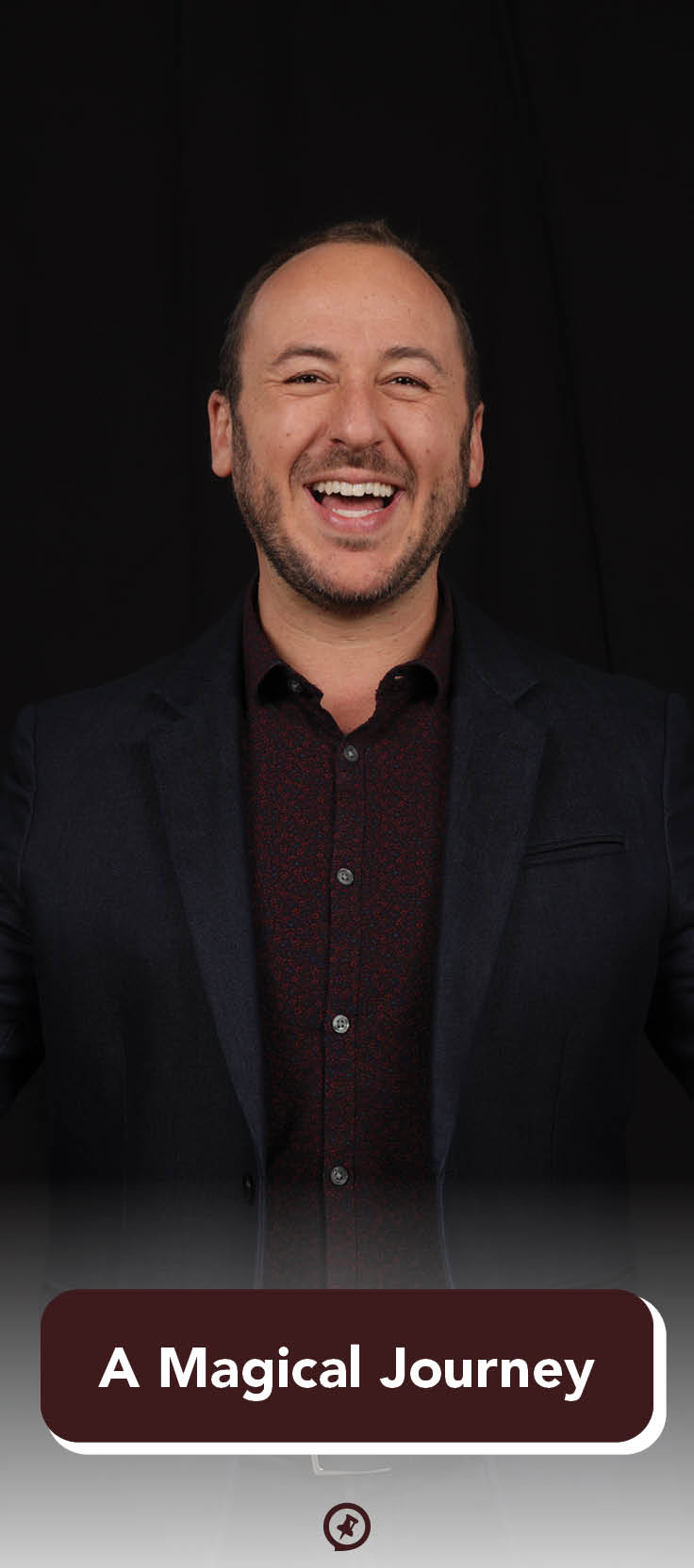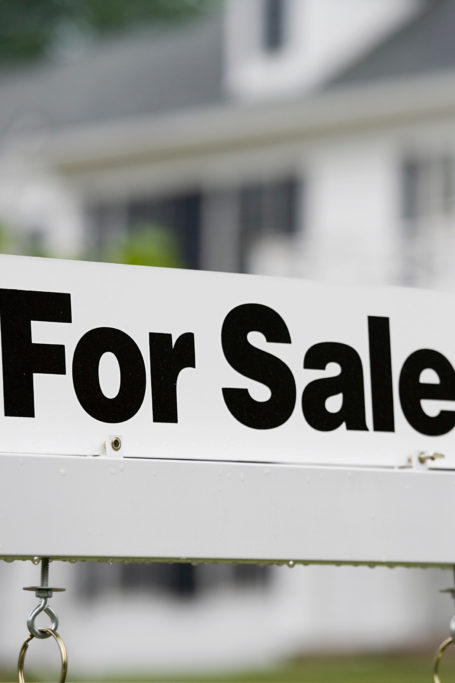A Magical Journey
Interview with Kostya Kimlat
World-renowned magician and speaker Kostya Kimlat discusses immigrating to America as a child, how he discovered his craft, and the thrill of dazzling an audience.
Tell us about that experience:
I was born in Kyiv, Ukraine, when it was part of the Soviet Union. I lived there long enough to experience the harsh realities of Soviet rule, such as standing in line to get bread and milk rations. My grandfather was unjustly imprisoned for a period, as so many men were, and my parents had to barter to procure basic necessities. In school, I wore a red star pin on my lapel with an image of Vladimir Lenin in the center. On top of all that, the Chernobyl disaster happened only an hour away from our home—that was the final straw that pushed my parents to flee as refugees.
So in 1992, they moved our family to America for a better life. Going from that bleak reality to the open arms of the United States, I was immediately struck by all the abundance and freedom here. I’ve always felt that it’s an amazing country.
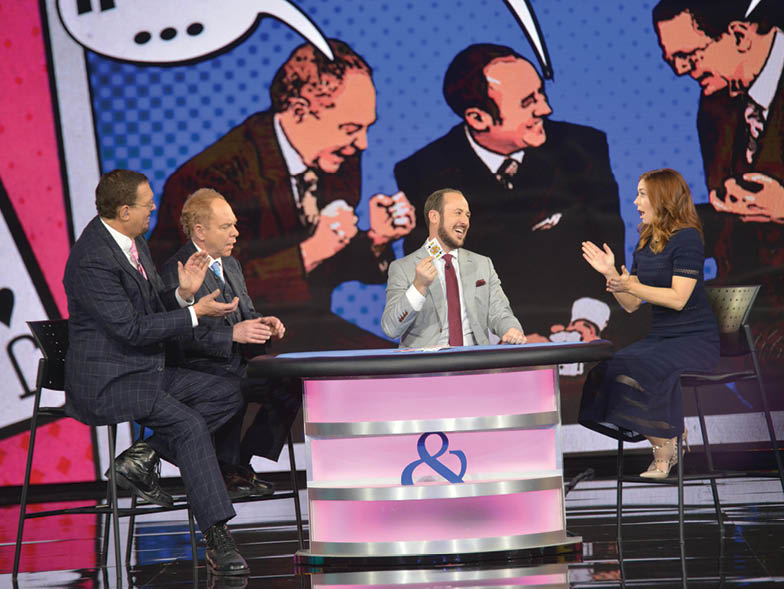
Was the transition challenging?
Mostly for my parents, who, in their forties, started a brand-new life in a foreign country—where they had to master a whole new language—for the sake of their children. We could only bring two pieces of luggage and $50 per person, so we came to America with $250, all our clothes and photos, and as many books as we could bring with us. In the Soviet Union, both my parents had master’s degrees and worked for years in engineering; they had to drop all that here. My mom learned to become an aesthetician, while my dad worked from 5:00 a.m. to 5:00 p.m. for two years in a steel factory until they could afford to put a down payment on a house. Their ability to restart their lives and embrace change was the greatest life lesson I could receive.
As a child, how did you adapt?
Being only nine years old, I was lucky. The older you are, the trickier it is to adapt, so I am sure it was harder for my fourteenyear- old sister to leave her friends. I was set if I just had cartoons. [Laughs] Thankfully, as I got older, magic allowed me to fit in everywhere. At the same time, though, I never truly felt like I fit in because I was treated like an outsider, like a joker in a deck of cards. For example, in high school, magic allowed me to connect to every social group, but I was never really part of any of them. However, it did teach me to be confident and pursue my passion for magic and later helped me become a solopreneur. That’s the advantage of being an immigrant: you have an immense drive to take advantage of what you know is a rare opportunity to live a better life.
Who helped you integrate into American life?
Along with the schools I went to, the Jewish community that sponsored my family helped me learn to read and write English. They really welcomed us and taught us all the fundamentals of American living, from writing a check to learning to drive. Their support was amazing. I also had a little 10-inch TV in my room, so I’d secretly watch David Letterman every night on mute but with closed-captioning on. Within months, I was speaking and spelling English as well as my fourth-grade classmates.
What fostered your love of magic?
At age twelve, I recorded a TV special, World’s Greatest Magic, on VHS tape. I watched it dozens of times in slow motion, and that got me hooked.
As an avid reader, I loved learning magic from books too. Knowing this, my dad took me to a magic shop to buy the first book of an eight-volume series on magic—and ended up buying all of them for $160. We’d been living in America for only four years, and to invest that much money in my passion was a huge deal. So I devoured those books, continued to buy more myself, and absorbed all I could.
Magicians also need mentorship, and I got it in spades at the local magic club and from visiting magicians, who passed on wisdom from previous generations of legendary performers, such as Dai Vernon and Edward Marlo.
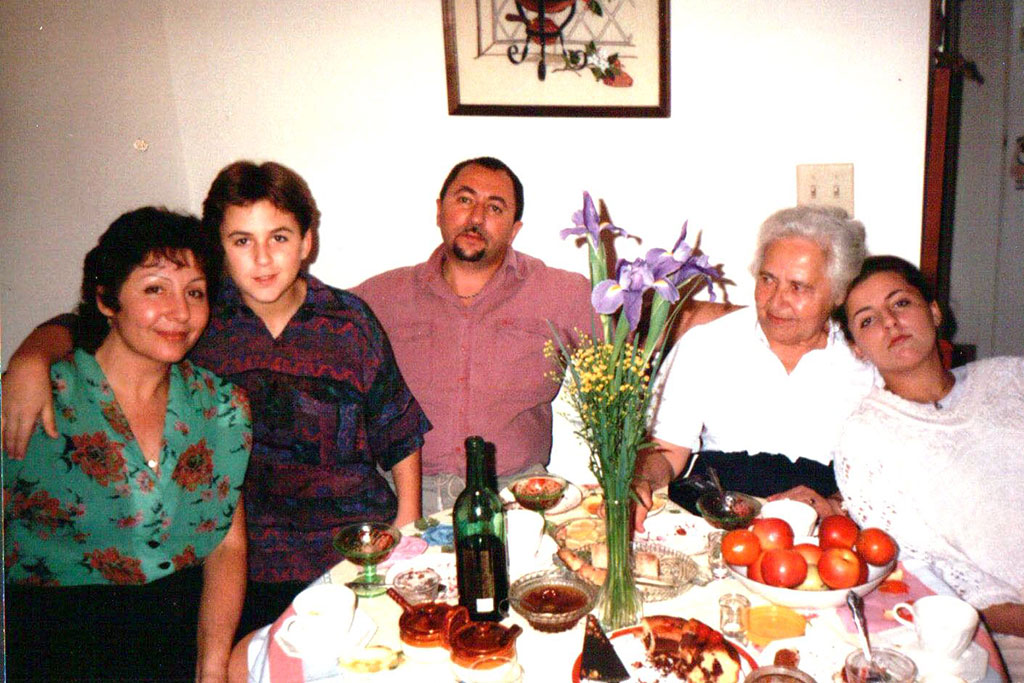
How did you build your reputation as a magician?
I started performing professionally at age fifteen, coming up with my own tricks. Three years later, I wrote a book of my own magic and, with persistence, got myself booked at local magic clubs across the United States. I also bought an unlimited Greyhound travel pass and went from city to city performing and lecturing, slowly building my reputation in the small underground world of sleight-of-hand magic.
After that, I continued doing magic shows and lectures: first all over America and then abroad. It was wild—I spent my twenties traveling the world, balancing tours in places like France, Italy, Norway, Japan, Peru, and Australia with going to college, performing in America, and growing my business as a corporate magician in my hometown of Orlando.
Being an in-person performer, how were you affected by COVID-19?
When COVID started, all my business stopped. I was resigned that my wife—who had just found out she was pregnant with our second child—and I would live off our savings and was looking forward to solely focusing on my family. But before the end of March 2020, I got a request for my first virtual magic show.
After a lot of work and trial and error, this new offering ended up blowing up for me. People needed connection and entertainment more than ever, and it was fulfilling to be a bright spot for many of them during an otherwise dark time. After two years of performing exclusively online, though, I realized how much I missed performing in-person magic, so I’m thrilled to be back performing and speaking from the stage in addition to holding virtual magic shows. Today, 80 percent of my business is keynote speaking and 20 percent entertainment events.
How does it feel to astound people?
With twenty-five years of experience, I know the exact moment when someone is going to be surprised or astonished. I anticipate it with glee and strive to maximize it. Often, they’re just frozen with their mouths open and eyes wide, not sure what to say because their brains are still processing what just happened.
As a speaker, I look forward to when people tell me they learned something new that has changed the way they see their world. That’s why I speak to groups about thinking like a magician—so they can learn to apply the principles of perception in their professional and personal lives.
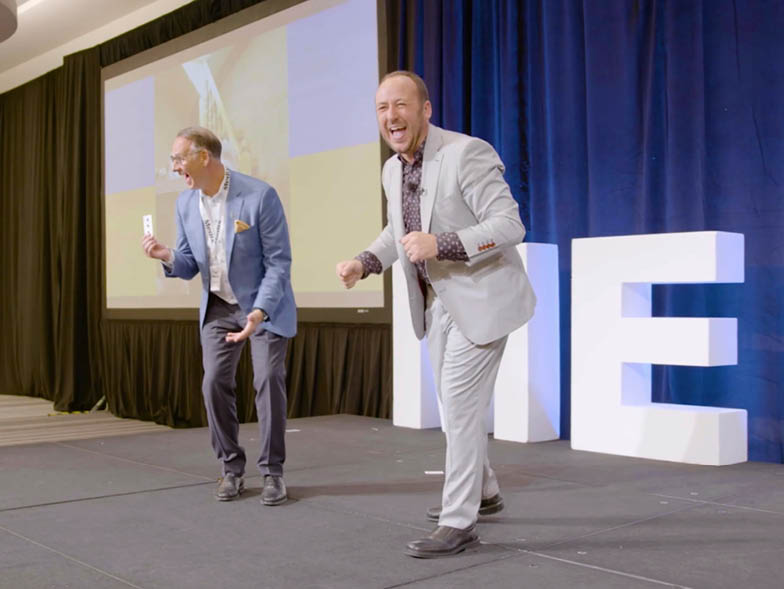
You also fooled Penn and Teller on their TV show. How was that experience?
The effect I performed for them is decades old, and most magicians know it. However, I combined proprietary technique with the right audience management and psychological subtleties to create a new version that would fool magicians. It took me years to master the trick. Still, I was very nervous about performing it on national TV for two of the greatest magicians in the world. I never could have predicted that Penn’s wild reaction at being completely fooled would make the clip go viral and become one of the series’ highlights. The prize was closing their Vegas show, which was an amazing experience.
I thank Penn and Teller every chance I get for their generosity and support because they are the kindest, most helpful, and most thoughtful individuals and gave me a chance. The experience transformed my business and my life.
Do you feel like you’re living the American dream?
Absolutely. I feel so grateful every day. My family were refugees welcomed by individuals who helped strangers start a new life. America invested in us and supported us, and my family reciprocates by contributing to society and helping others. I am immensely lucky and grateful to my parents and community for making our immigration possible.
This is where my eternal optimism comes from—because I know things could have been so different. I love my life here. Americans should take advantage of their quality of life and appreciate how much abundance and opportunity they have at their fingertips every day. It’s truly amazing what’s possible; you just have to see it.
For more info, visit kostyakimlat.com







